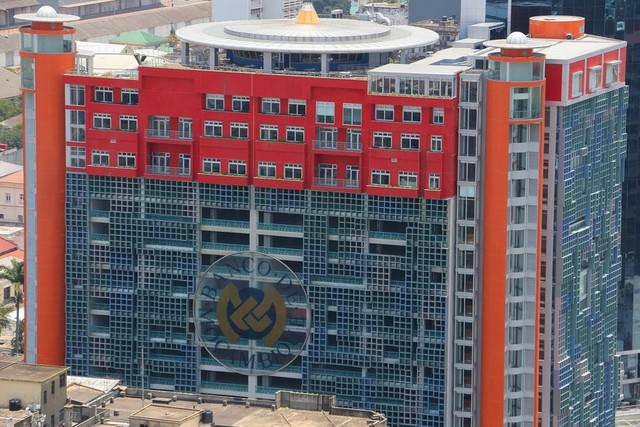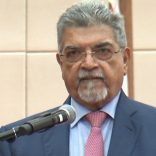Mozambique government approves $20 mln BADEA loan to build two district hospitals
Mozambique: Central Bank keeps interest rates unchanged

File photo: Angop
The Monetary Policy Committee of the Bank of Mozambique (CPMO), meeting in Maputo on Wednesday, decided to keep the bank’s key interest rates unchanged.
According to a statement from the CPMO, signed by the governor of the Bank, Rogerio Zandamela, the Interbank Money Market Rate (MIMO), used by the central bank for its interventions on the interbank money market to regulate liquidity, remains 10.25 per cent.
Likewise, the Standing Lending Facility (the interest rate paid by the commercial banks to the central bank for money borrowed on the Interbank Money Market) remains 13.25 per cent, while the Standing Deposit Facility (the rate paid by the central bank to the commercial banks on money they deposit with it) remains 7.25 per cent.
The CPMO also decided to hold the compulsory reserve coefficient, the amount of money that the commercial banks must deposit with the Bank of Mozambique, steady at 11.5 per cent for local currency and 34.5 per cent for foreign currency.
The statement said the decision “is justified by the worsening of risks and uncertainties, in a context where the medium term prospects point to a trend to rising prices in 2021, in a situation in which economic activity remains repressed”.
The Bank of Mozambique predicts a rise in inflation in the short and medium term. Annual inflation increased from 2.75 per cent in August to 2.98 per cent in September. In 2021, inflation will continue to rise because exceptional measures taken by the government to hold down prices in the face of the coronavirus pandemic will come to an end.
Nonetheless, given the current weak demand for goods and services, the bank expects annual inflation to remain in single digits (i.e. less than ten per cent).
The CPMO statement notes that, after the contraction of economic activity this year due to the impact of the pandemic, “a gradual resumption of growth is expected in 2021, driven by the natural gas projects in the Rovuma Basin, in a context where the performance of export-oriented sectors may remain limited by the weak recovery of the world economy”.
The domestic exchange market is not currently short of foreign exchange. The CPMO said that, during 2020, the central bank has purchased the equivalent of 3.98 billion US dollars on the domestic exchange market, and has sold 3.93 billion dollars.
In addition, the country’s gross international reserves have risen to 3.912 billion dollars, enough to cover more than six months imports of goods and services.
Despite this, the central bank expects the metical to continue its slow depreciation, “reflecting, among other factors, the risks and uncertainties prevalent in the domestic economy”.
Those risks and uncertainties have increased in recent months, due to such factors as a second wave of Covid-19 in the advanced economies and the approaching US presidential election. Within Mozambique, concerns have increased about the pandemic and the worsening military instability in the northern province of Cabo Delgado, where the government is fighting Islamist terrorism, and in the centre of the country, where the self-styled “Renamo Military Junta” is continuing to attack traffic on the main roads.
Mitigation of the prevailing risks and the promotion of sustainable growth will require “the deepening of structural measures”, the CPMO advises. There are limits to what monetary policy alone can achieve, and so the CPMO calls for “fiscal consolidation, and the strengthening of institutions, seeking to improve the business environment, attract investment and create jobs”.












Leave a Reply
Be the First to Comment!
You must be logged in to post a comment.
You must be logged in to post a comment.